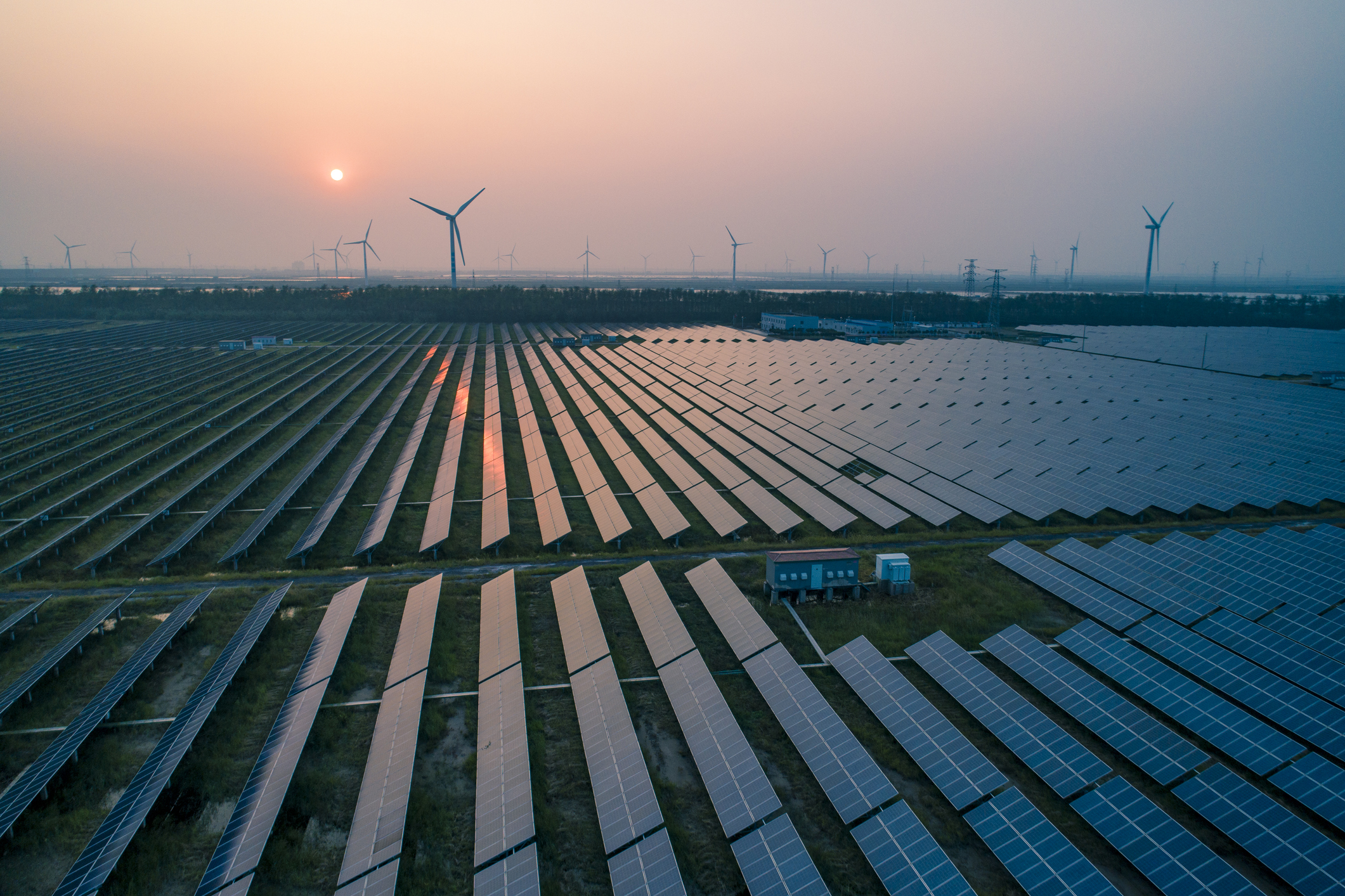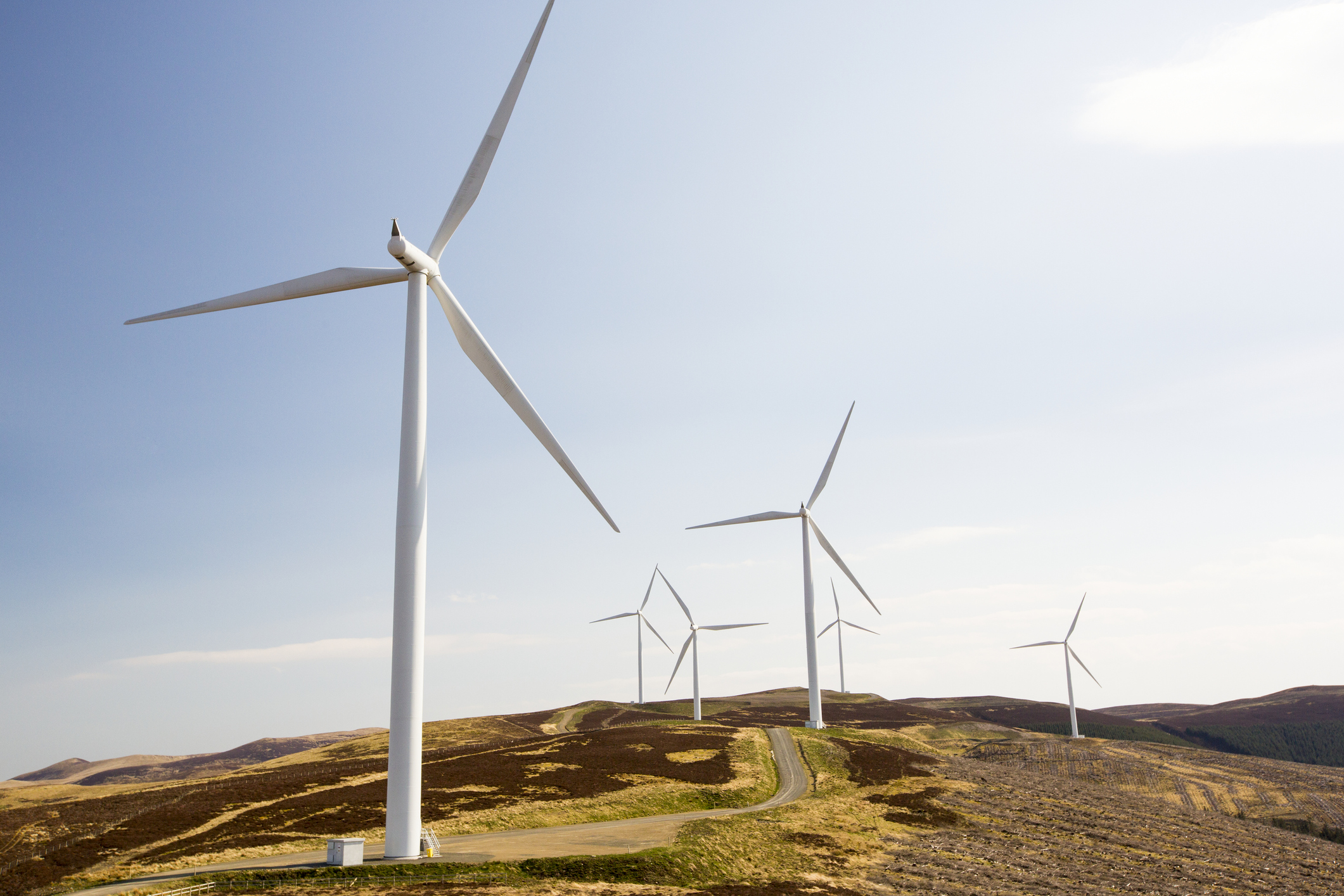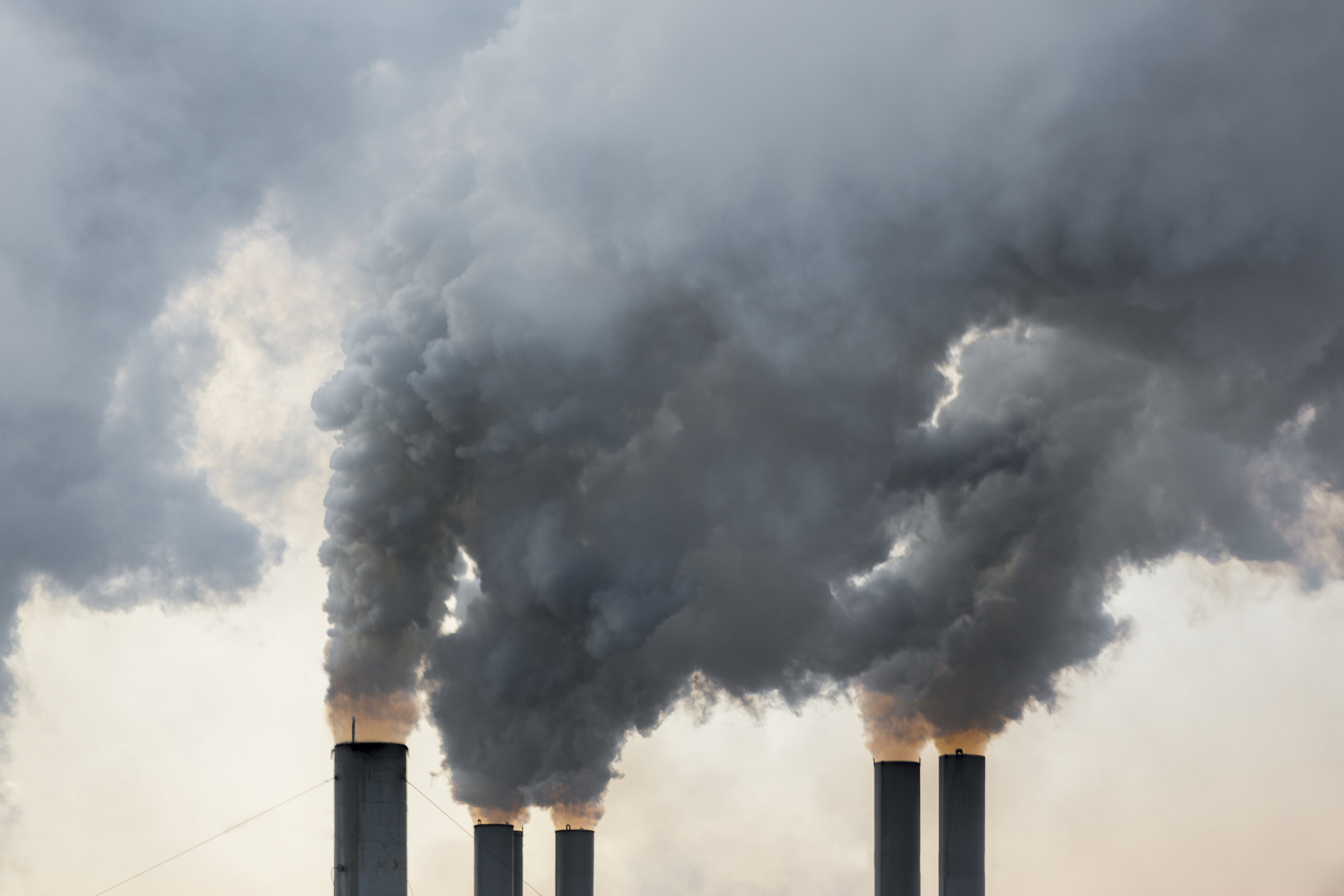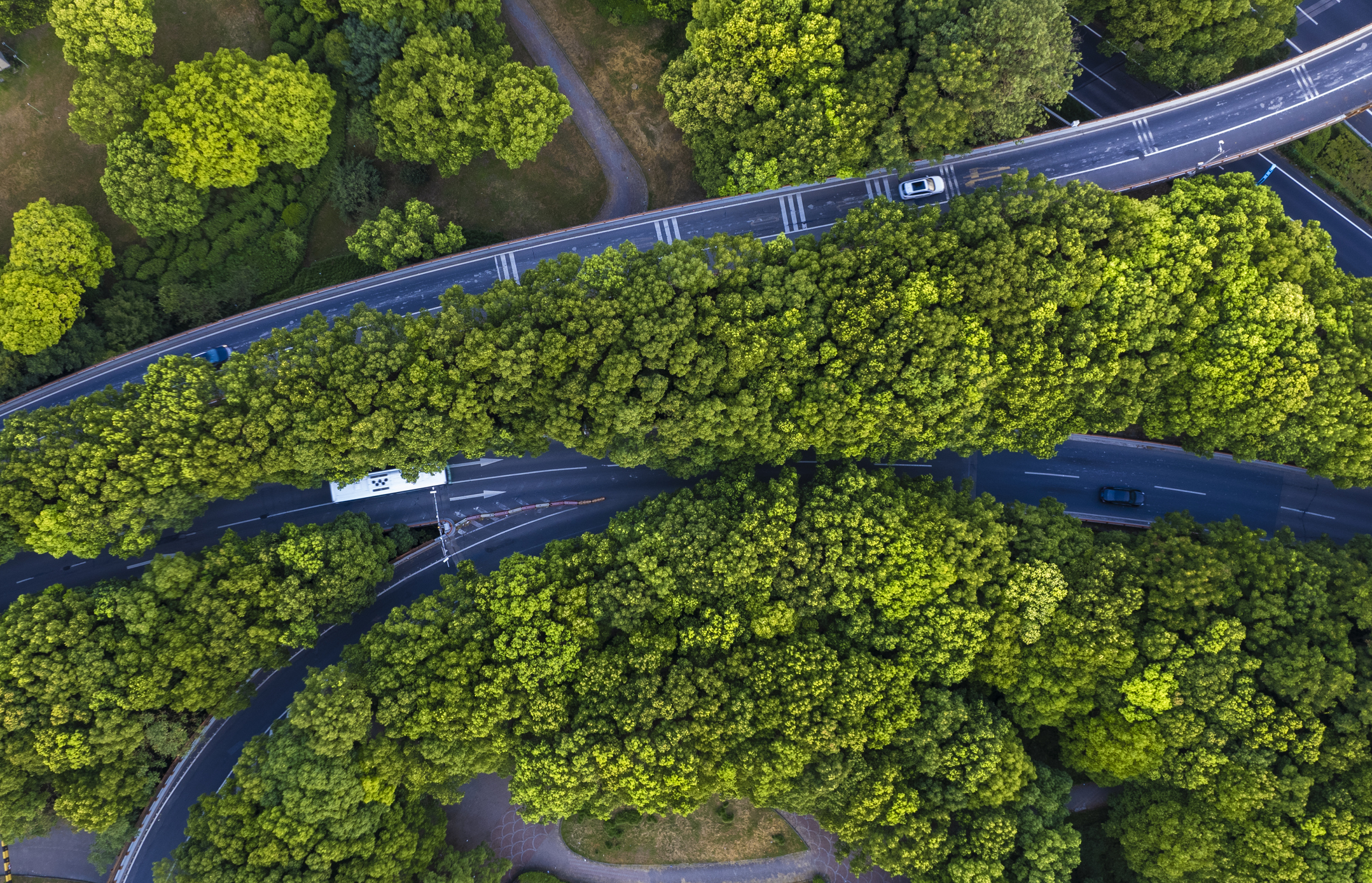
It's one of the most important focuses of the conference.
One of COP26's major focuses is to reduce coal usage and, today, over 40 countries have pledged to do so, including major coal polluters Poland, Vietnam and Chile.
However, Australia, India, the US and China are still yet to commit, despite being known to use a vast amount of coal yearly.
Coal is the single biggest contributor to climate change. Those countries who have signed the agreement are pledging to end investment in new coal power generation moving forwards, both domestically and internationally.
They have also committed to moving away from coal power in all major economies by 2030, and in all poorer nations by 2040, it has been reported.
UK business and energy secretary Kwasi Kwarteng said: "The end of coal is in sight."
This will no doubt help the world move towards its net zero pledge reached in the 2015 Paris Agreement. Not sure what net zero actually means? In short, it's a vow the UK made to reduce emissions by the year 2050. The UK was the first country to do so, and at said Paris Agreement, many of the other global powers pledged to do the same, too. But is progress being made? Or were the pledges made in vain?
Keep scrolling for our guide to the net zero meaning and what changes the UK need to make to reach it, and don't miss our guides to greenwashing, fast fashion, and how to calculate your carbon footprint, while you're here.
Celebrity news, beauty, fashion advice, and fascinating features, delivered straight to your inbox!
Your guide to net zero: what it means and how to reach it
Net zero meaning: what is net zero?
As above, the UK became the first ever country to pledge to reach net zero by 2050 in 2008, promising an 80% reduction of greenhouse gas emissions in just 42 years. At the Paris Agreement of 2015, many other countries pledged to reach net zero, including the European Union, Canada, South Korea, Japan, and South Africa.
But what does reaching it actually mean? As Alex Mackaness, Soil Association policy advisor explains, it simply means balancing the levels of greenhouse gases produced with the levels removed from the atmosphere. In short, it's a state of carbon neutrality.
You'll know that carbon dioxide is released by things like transportation and energy production. "Do note, though, that your carbon footprint includes other greenhouse gases including water vapour, methane, nitrous oxide and ozone, which need to be lowered, too," adds Mackaness.
Eliot Whittington, director of the Corporate Leaders Groups at the University of Cambridge's Institute for Sustainability Leadership (CISL), agrees, expanding the definition of net zero to include any and all greenhouse gas emissions, not just carbon dioxide. "Reaching net zero means we've successfully counterbalanced and implemented systems that absorb those emissions, and that there is no net increase in overall emissions into the atmosphere," he shares.

Net zero vs carbon neutral: what's the difference?
They're linked, but not the same. Net zero means all greenhouses gases are balanced, and we don't produce more of any gases than we offset.
Carbon neutral, on the other hand, is the phrase used to describe decreasing - or halting - carbon emissions specifically.
What is a net zero economy?
According to Whittington, on a global level, it's an economy in which we drastically cut emissions while also developing ways to take emissions out of the atmosphere.
"On a country-by country or company level it’s the same, but it can be more difficult to work out emissions ownership and what options there might be speed up reductions," he explains. "However, the world is becoming aware of our need to act quickly on climate change. More work is being done all the time to understand how to tackle these issues."

When is the UK meant to reach net zero?
As above, we're a part of the Paris Agreement, which means we're legally obliged to reach net zero by 2050.
Fun fact: while the UK was the first major economy to sign up to do so, as it stands, over two thirds of the global economy has agreed to some kind of net zero goal or target. Not bad.
Will the UK reach net zero in time?
Short answer: we don't know. As Whittington points out, progress hasn't been as rapid as promised, and many have been left disappointed. "Recently, the Government’s advisors on climate change, the Committee on Climate Change (CCC), painted a worrying picture about the UK’s progress in meeting this target," he warns.
"Although commendable targets have been set, much more action is needed."
The scale of the challenge is huge and requires the entire world to rethink how it generates energy, builds housing, travels, grows food, makes products and everything in between. It can seem daunting and sometimes even impossible, but you shouldn’t understate the energy rising up to meet the challenge, reckons Whittington.
"Governments increasingly recognise their core duty in responding and are setting their ambitions to deliver change. Hundreds of businesses and investors have committed to act and billions of dollars are being shifted into new ways of doing things. More than 600 businesses from all around the world have just written to the leaders of the G20 nations asking for key actions like an end to coal, an end to subsidies for fossil fuels and rapid efforts to scale up renewables and other solutions – and they’ve done this because they recognise the essential business logic behind action," he shares.
Yes, we have a long way to go and yes, we do need much more action, but Whittington explains that big changes often happen in two ways. "Very slowly to start with and then all at once as we reach a tipping point. We’re already seeing this with renewable energy and we’re starting to see this it with electric cars, meat free diets, active travel and many other things, too."
Another problem? Mackaness points out, there's concern that the plan relies too heavily on lowering CO2 emissions.
"This risks creating trade-offs against the other crises we face, when they must be tackled together," he explains.
Take the massive scale-up of bioenergy crops, for example. They may suck up lots of carbon out of the atmosphere and help us to reach net zero, but "it will be all for nothing if these crops damage biodiversity, use up precious water and reduce our ability to adapt to climate change," the expert warns.

When is the rest of the world meant to reach net zero - and will it?
As per the Paris Agreement, the richest countries are expected to hit the target by 2050, "while developing countries should be there by 2060," shares Whittington. "If this level of ambition can be reached, it should give us a chance of keeping warming below 1.5 degrees c," he shares.
Do note: each country’s commitment will be different and based on individual circumstances, shares Mackaness.
"Next month's COP26 is absolutely critical because countries need to put forward more ambitious goals for ending their contribution to climate change under the Paris Agreement," he continues.
5 things you can do to help the UK reach net zero
Here, Abdul-Razak Saeed, lead for climate change at The Rainforest Alliance, shares his top tips for doing your bit.
1. Educate yourself
Reading resources like this article and educating yourself on what needs to be done is the first step. That way, you can then use your voice when movements like the Stop Cambo campaign - a collective trying to stop the government from drilling 1.7 billion barrels of oil into the sea off the coast of Scotland that'd produce ten times the amount of emissions that Scotland does.
2. Be mindful with your travel
As yourself, can you cycle or walk? Every little helps.
3. Reduce your waste
You could try composting, avoid single use plastics, and remember to recycle, too.
4. Watch what you eat
You don't have to go full vegan, but reducing your meat intake is an easy way to show your support.
5. Invest in clean energy
We rely on energy every day to light up and warm our homes and offices, power our industries, shares Saeed. "To reach net zero in the UK, we must increase clean energy investments in major renewable energy projects and build out a resource and energy-efficient system that reduces energy demand across the economy," he shares.
While you may not be able to do that from home, what you can do is make sure you're opting for green investing and clean energy companies like Bulb, Pure Planet or Octopus Energy.

Ally is Marie Claire UK's Senior Health and Sustainability Editor, a well-regarded wellness expert, ten-time marathoner, and Boston Qualifying runner.
Utilising her impressive skillset and exceptional quality of writing, she pens investigative, review and first-person pieces that consistently demonstrate flair and originality.
As well as writing, Ally manages a team of freelancers, oversees all commissioning and strategy for her pillars, and spearheads the brand's annual Women in Sport covers, interviewing and shooting the likes of Mary Earps, Millie Bright, and Ilona Maher. Shortlisted for three BSMEs and winning one in 2022, Ally lives and breathes her verticals: her eye for a story and connections within the wellness sphere are unrivalled. Follow Ally on Instagram for more.
